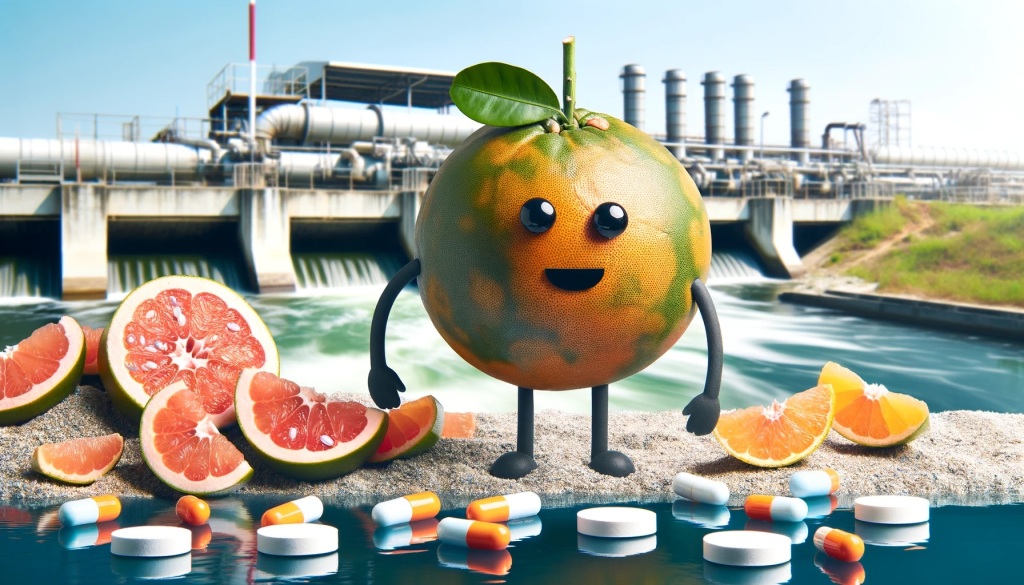Lai, et al (2024) Pomelo peel biochar supported nZVI@Bi0 as a persulfate activator for the degradation of acetaminophen: Enhanced performance and degradation mechanism. Separation and Purification Technology. https://doi.org/10.1016/j.seppur.2024.127966
Scientists have developed a new material to address pharmaceutical pollution. Using pomelo peel biochar, they created a composite that enhances the degradation of acetaminophen (ACE), a common pain reliever and environmental contaminant. This method combines nanoscale zero-valent iron (nZVI) with bismuth (Bi) on biochar, showing promise for water treatment.
The research, published in Separation and Purification Technology, details the synthesis of nZVI encapsulated with Bi on pomelo peel biochar (nZVI@Bi0/PPBC). This composite effectively activates persulfate (PDS), an oxidant for degrading pollutants like ACE. The inclusion of Bi improves the reproducibility, stability, and catalytic efficiency of nZVI. The degradation rate of ACE using the composite is about 1.5 times higher than with nZVI alone.
This advancement tackles a key issue in environmental chemistry: balancing reaction kinetics and reproducibility of nZVI in persulfate oxidation systems. nZVI can activate PDS by releasing Fe(II) in water, generating reactive oxygen species (ROS) for pollutant degradation. However, nZVI tends to agglomerate, reducing its surface area and efficiency. Encapsulating nZVI with Bi on biochar addresses these problems, creating a more effective and stable catalyst.
The researchers used a hydrothermal-assisted carbon reduction method to synthesize the composite. Pomelo peel biochar acts as a high-surface-area carrier, dispersing nZVI particles and enhancing their catalytic properties. Bi accelerates the cycle of Fe(II) and Fe(III), maintaining high catalytic activity. Higher pyrolysis temperatures increase Bi content, further improving performance.
Experiments revealed that singlet oxygen (1O2) and superoxide radicals (O2·−) are the main ROS in the nZVI@Bi0/PPBC/PDS system. These ROS are crucial for ACE degradation. The composite also works well across a broad pH range (3.0–9.0) and resists interference from certain anions, making it suitable for various conditions.
The practical implications are noteworthy. The pomelo peel biochar-supported nZVI@Bi0 composite offers a sustainable and effective solution for removing pharmaceutical pollutants from water. Using agricultural waste (pomelo peels) makes the process environmentally friendly and cost-effective. The enhanced stability and reproducibility of the composite ensure its potential for long-term water treatment applications.
In conclusion, the development of nZVI@Bi0/PPBC marks a promising step in environmental remediation. This material addresses the challenges of nZVI-based PDS systems, leveraging the benefits of biochar and bismuth to create an efficient catalyst. As pharmaceutical pollutants like acetaminophen pose risks to aquatic environments and human health, such solutions are crucial for protecting ecosystems and ensuring clean water for the future.






Leave a comment